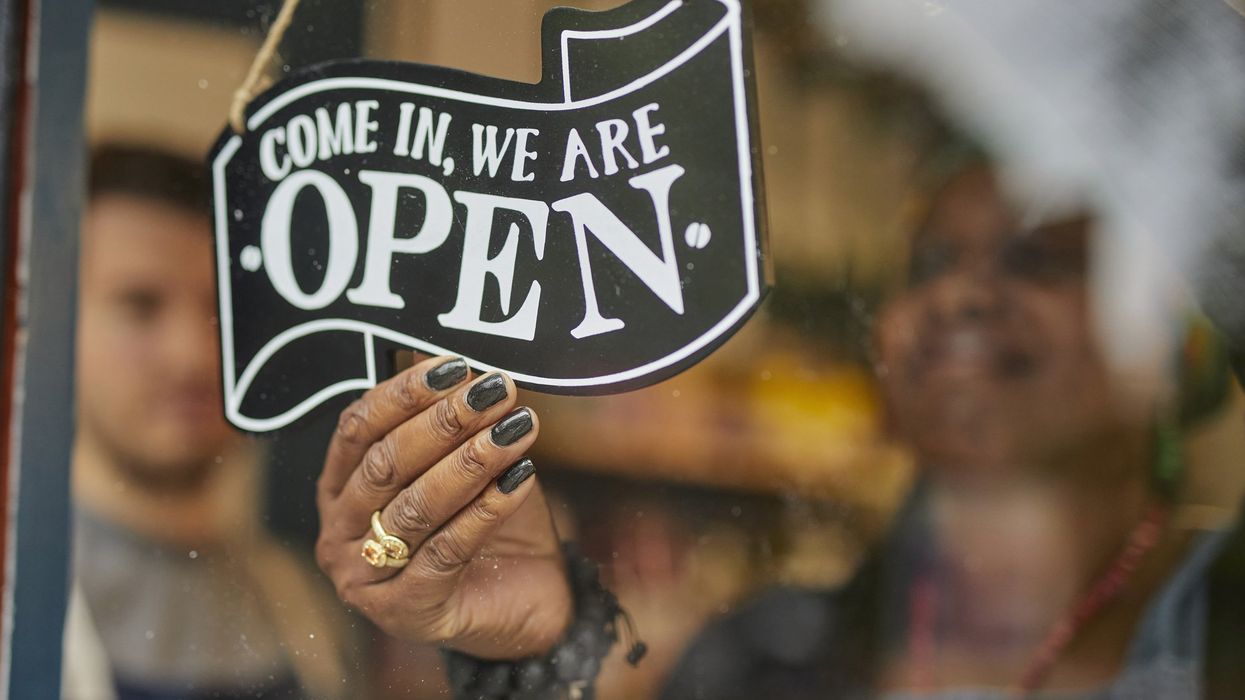Every August, National Black Business Month rolls around, and for a few weeks, social media lights up with hashtags and well-meaning posts about supporting Black-owned businesses. You'll see lists pop up—restaurants, bookstores, clothing lines—all run by Black entrepreneurs. Maybe your favorite coffee shop puts up a sign, or a big brand launches a campaign. But once the month ends, the noise fades, and for many, it's back to business as usual.
This cycle is familiar. It's easy to mistake visibility for progress or to think that a single purchase is enough. But National Black Business Month is meant to be more than a fleeting moment of recognition. It's a moment to interrogate the systems that got us here and to put our money—and our intent—where our mouths are. In a better world, Black business success would be a given, not a cause for annual celebration.
Understand it is impossible to talk about Black entrepreneurship in America without acknowledging the weight of history. For generations, discriminatory practices—from redlining and restricted access to capital to exclusion from professional networks—stunted the growth of Black businesses. Even now, Black entrepreneurs face higher loan rejection rates, higher interest rates, and less venture capital funding than their white counterparts. According to a 2022 Federal Reserve report, only about 1% of U.S. venture capital-backed founders are Black. The numbers aren't just statistics; they represent dreams deferred, ambitions underfunded, and talent overlooked.
National Black Business Month isn't about charity. It's about correcting an imbalance and recognizing that supporting Black-owned businesses is suitable for everyone. When Black businesses thrive, whole communities thrive. They create jobs, fill unmet needs, and serve as cultural anchors. According to the U.S. Census Bureau, Black-owned companies employ over a million people and contribute billions to the economy. It's not a side story—it's a central one.
However, for all the progress, there's a reason why this month still matters. Far too many Black entrepreneurs are still fighting uphill battles. The pandemic took a heavy toll—between February and April 2020, nearly half of all Black-owned businesses closed, compared to 17% of white-owned companies. While some have bounced back, recovery has been uneven. The old barriers—access to capital, mentorship, and networks—are still in place, even if the language around them has softened.
What does it mean to "raise consciousness" during National Black Business Month? It means moving beyond token gestures. It means asking hard questions: Are we supporting Black businesses only when it's convenient, or are we making it part of our everyday lives? Are corporations using this month as a branding opportunity, or are they committing real dollars to Black founders? Are local governments ensuring that Black entrepreneurs have equal access to city contracts and resources, or are old patterns simply repeating themselves?
The easiest place to start is with our wallets. Conscious consumerism isn't about guilt or obligation; it's about making choices that reflect our values. If you're willing to wait in line for a new iPhone or drive across town for a trendy brunch spot, you can as easily seek out a Black-owned bookstore, bakery, or clothing store. With apps and directories now making it easier than ever to find Black-owned businesses in your area, there's no excuse not to.
Moreover, it means becoming a regular, not just a one-time customer. It means leaving positive reviews online, recommending businesses to friends, and engaging with brands on social media. For those with platforms—whether that's a classroom, a boardroom, or a news feed—it means using your influence to amplify Black voices and businesses. And for those with capital, it means investing, not just spending.
Individual action matters, but it's not enough. Transformational change requires institutions—banks, venture capital firms, government agencies, and corporations—to step up. That means rethinking lending standards, breaking down barriers to procurement, and building pipelines for Black talent. It means mentorship programs that are more than just window dressing, and grant funding that doesn't disappear after August.
Initiatives like the NAACP's Black-Owned Business Resource Center and the National Black Chamber of Commerce are pushing for structural change. Major banks have pledged billions to support Black-owned businesses. But promises need to be matched by outcomes. Are these dollars reaching Black entrepreneurs, or are they getting lost in bureaucracy? Are new policies changing who gets hired, funded, and promoted, or is it just more of the same?
It's easy to lament our challenges, but National Black Business Month is also a time to celebrate. Black entrepreneurs are reshaping industries, creating brands with global reach, and setting new standards for excellence. Think of Tristan Walker, who built Bevel and then sold it to Procter & Gamble. Or Pinky Cole, whose Slutty Vegan empire is turning plant-based food into a cultural phenomenon. Or the thousands of small business owners who keep their doors open against all odds, offering spaces for connection and creativity. These stories aren't just inspiring—they're instructive. Thus, highlighting what is possible given when talented people have room to grow, when consumers show up, and when institutions do their part. They remind us that Black business success is not a miracle—it's the outcome of hard work, innovative strategy, and community support.
So this August, celebrate loudly. Share your favorite Black-owned brands. Eat, shop, and invest with intention. But don't let it stop there. The fight for economic justice, for equity, and opportunity is year-round. Black businesses have always been at the heart of American innovation and culture. It's time our support matched their impact—not just for a month, but for good.
Rev. Dr. F. Willis Johnson is a spiritual entrepreneur, author, scholar-practioner whose leadership and strategies around social and racial justice issues are nationally recognized and applied.




















Trump & Hegseth gave Mark Kelly a huge 2028 gift